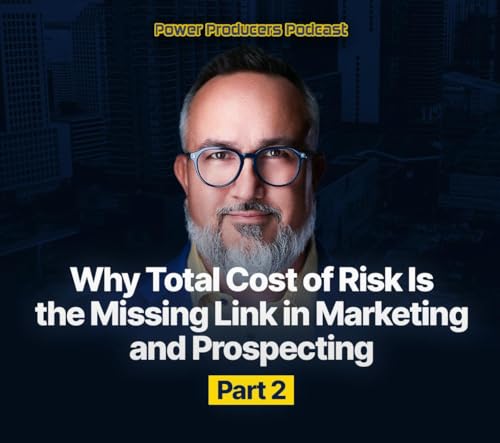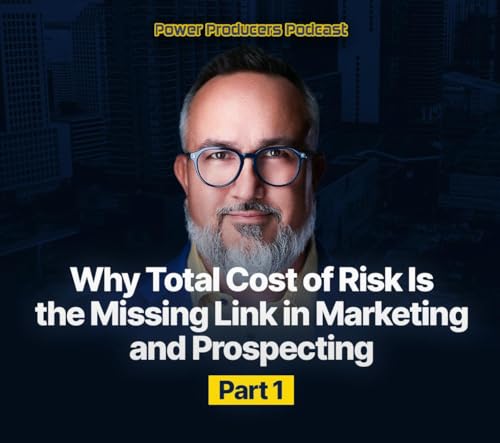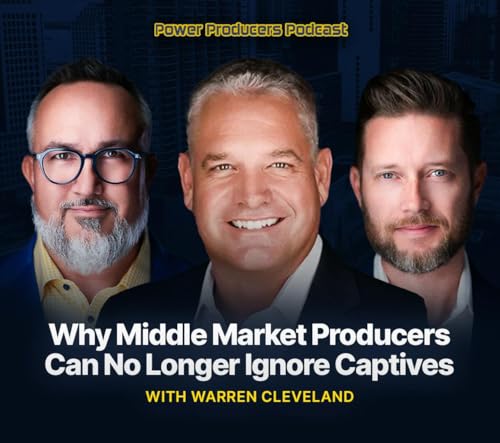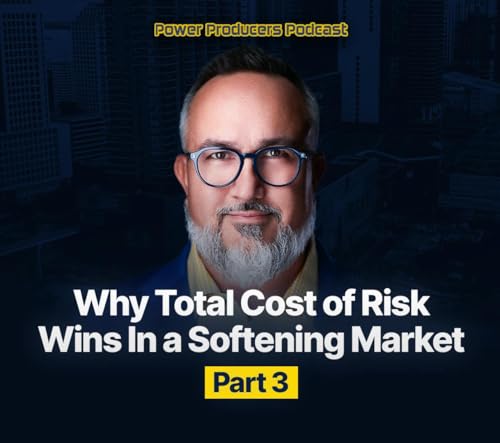In this episode of Shoptalk, David Carothers dug into total cost of risk with a focus on downtime, disruption, and distraction as hidden drivers of long term expense. Using real manufacturing examples, he explained how equipment breakdown, supply chain delays, and even severe workers’ comp injuries can create operational losses far beyond what shows up in loss runs. He also outlined how middle market producers can use a year-round cadence of touch points to control costs, strengthen submissions, and create clear wedges in prospecting. The episode ends with a note that this is part one, with part two continuing next week. Key points: Downtime is a Business Threat Not Just a Claim Issue David explains that equipment breakdown and specialized machinery delays can shut production down for weeks. He shared a story about a printing operation where a simple mistake destroyed equipment and required overseas technicians and parts, resulting in four to six weeks of downtime. The bigger point is that downtime can create losses that linger well beyond the repair window. Shelf Space and Reputation Loss Can Be Permanent For manufacturers selling into major retailers, downtime can cost more than sales for a single season. David breaks down how hard it is to earn premium placement and holiday displays, and how quickly retailers replace brands that cannot fulfill orders. Once that shelf space is lost, it is often gone for good, creating a long tail financial hit. Workers’ Comp Injuries Can Trigger Operational Chaos A severe injury is not only a claim cost. It can shut down equipment, trigger investigations, delay production, and reduce productivity across the floor. David described an extreme degloving incident tied to bypassed guarding on machinery and highlighted how fear, disruption, and compliance activity stack costs for years. Total Cost of Risk Changes the Sales Conversation Instead of reacting to bad loss runs with tactical fixes like consent to rate or a PEO, David pushes producers to quantify all hidden costs. That includes downtime, out of pocket claims, administrative time, and disruption impacts. When clients see total cost, the conversation shifts from price shopping to strategic planning. This is a Year Round Process Not a Renewal Project David emphasizes that total cost of risk is not a spreadsheet exercise done once a year. It is a 365 day approach built on consistent accountability and structured touch points. He recommends using a twelve subject cadence to stay in front of accounts, strengthen renewals, and build trust over time. Risk Management Actions Can Create Underwriting Leverage He shared a practical example where a manufacturer lost power for over a week after hurricanes. The solution was putting a generator company on retainer so a large unit could be delivered when storms approached. David explains how actions like this protect reputation, reduce downtime, and can be positioned to underwriters for potential credits. Trusted Advisor Positioning Wins Even at Higher Cost David compares advisory insurance work to paying for high quality legal or accounting help. Clients may pay more upfront, but the long term savings and control are what matter. He argues that better stories, better frameworks, and measurable risk control results eliminate late stage price objections and create stronger referrals. Connect with: David Carothers LinkedIn Kyle Houck LinkedIn Visit Websites: Power Producer Base Camp Killing Commercial Crushing Content Power Producers Podcast Policytee The Dirty 130 The Extra 2 Minutes
続きを読む
一部表示
 19 分
19 分 55 分
55 分 19 分
19 分 53 分
53 分 23 分
23 分 47 分
47 分 28 分
28 分 48 分
48 分
